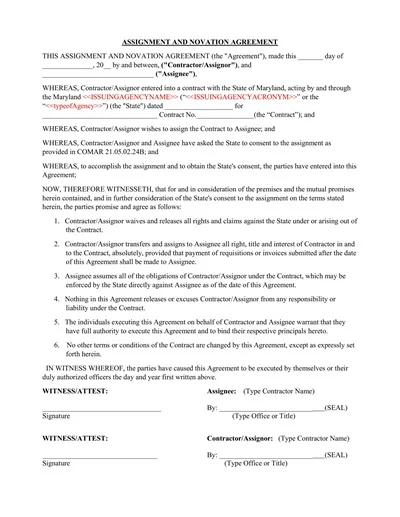
A Novation Agreement Template is a formal document used to transfer contractual obligations and rights from one party to another. This legal instrument facilitates the replacement of an original party in a contract with a new party, effectively ensuring that the original contract’s terms remain intact and enforceable.
Table of Contents
In contrast, the initial contracting party is released from all obligations. It is commonly utilized in various business scenarios, such as when transferring lease obligations, service agreements, or restructuring company debts, to ensure a seamless transition of responsibilities and rights.

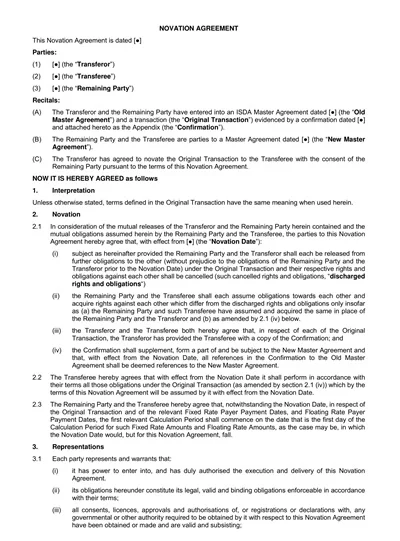
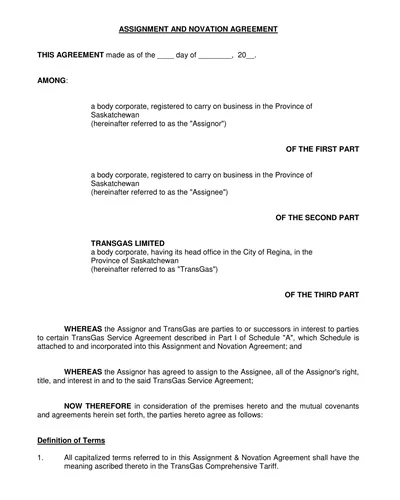
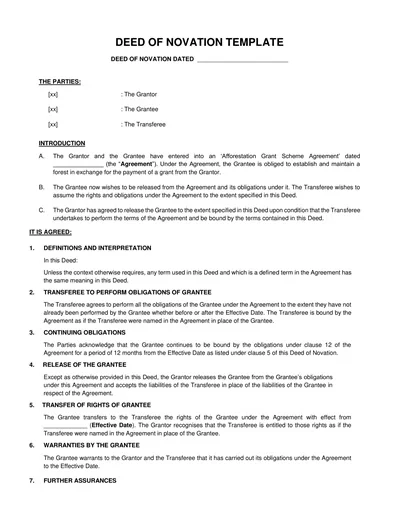
A Novation Agreement is a legal document that facilitates the transfer of one party’s rights and obligations under a contract to another party, ensuring that the original contract remains in effect but with the new party stepping into the shoes of the original party.
This agreement differs from a simple assignment as it requires the consent of all parties involved, including the one being replaced. Novation is commonly used in business transactions and real estate deals, allowing for the smooth transition of responsibilities and ensuring the original terms of the contract are upheld by the new party.
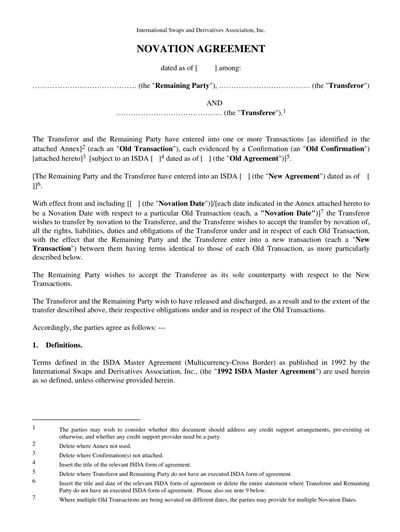
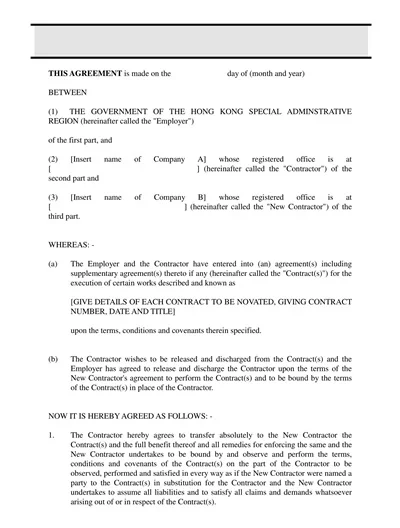 Government Novation Agreement Template" width="400" height="528" />
Government Novation Agreement Template" width="400" height="528" />
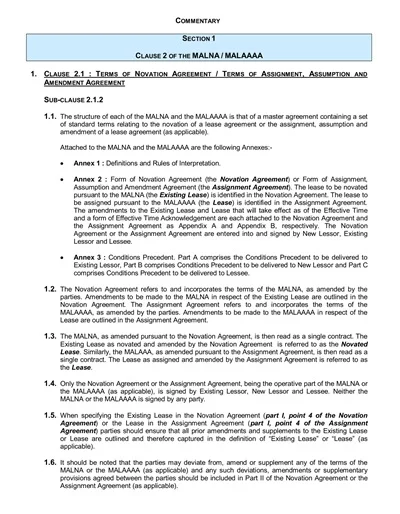
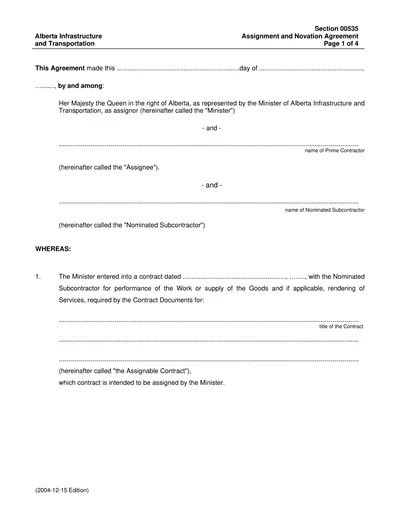
A Novation Agreement is a legal contract that facilitates the transfer of one party’s rights and obligations under a contract to a third party, effectively replacing the original party with the new one.
Key components typically included in a Novation Agreement consist of:
This structure ensures a clear understanding between all parties involved, legally formalizing the transfer of responsibilities and obligations.
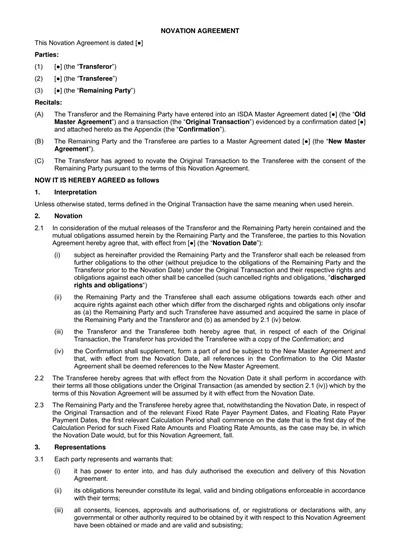
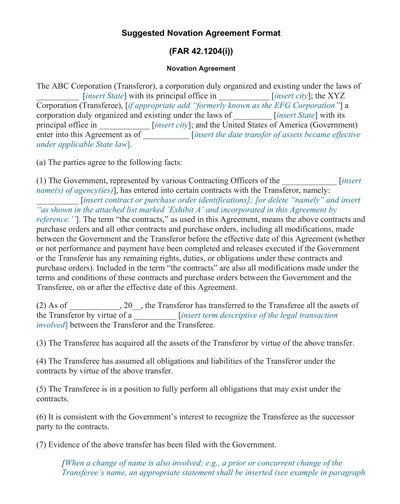
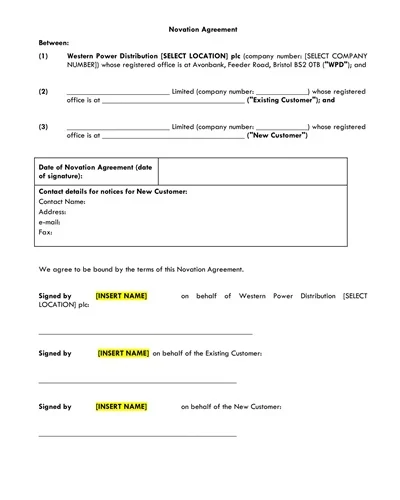
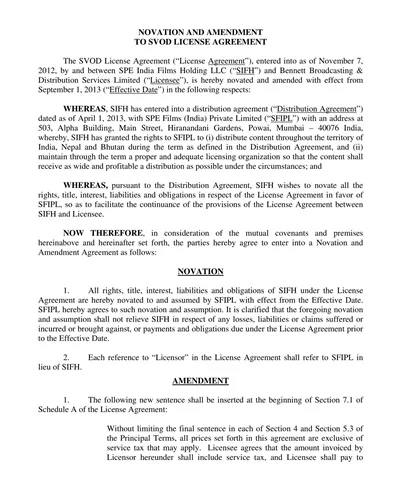
Aside from the parties involved and their respective obligations and rights, there are several other terms commonly found in a novation agreement.
Defines the parties involved in the novation, including the original party wishing to transfer their obligations and rights, the entity taking on these obligations and rights, and any remaining parties whose agreement is necessary for the novation to take effect.
Specifies the date on which the novation agreement becomes effective.
Outlines the details of the original contract, including its purpose, date, and any specific terms relevant to the novation.
Describes in detail the obligations and rights being transferred to the new party.
Contains any warranties and representations made by the parties involved in the novation agreement. This may include assertions that all parties have the authority to enter into the novation and that there are no legal impediments to the transfer of rights and obligations.
Specifies any indemnities given by the outgoing party to the incoming party or vice versa, particularly regarding potential losses or damages arising from the period before the novation.
Involves any necessary consents from other entities not party to the novation but whose agreement is required for its validity.
Establishes the legal jurisdiction and the laws under which the novation agreement will be interpreted and enforced.
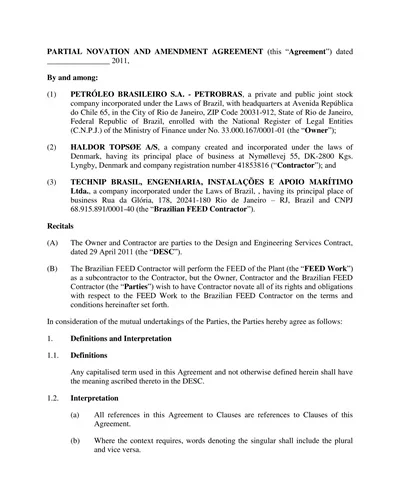
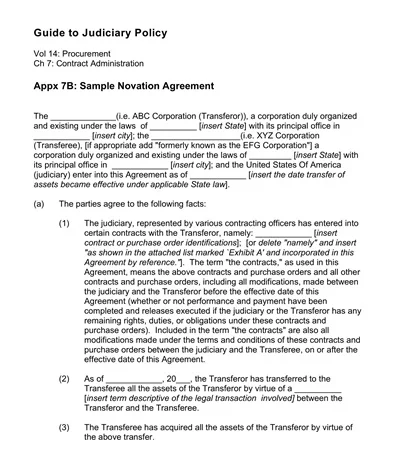
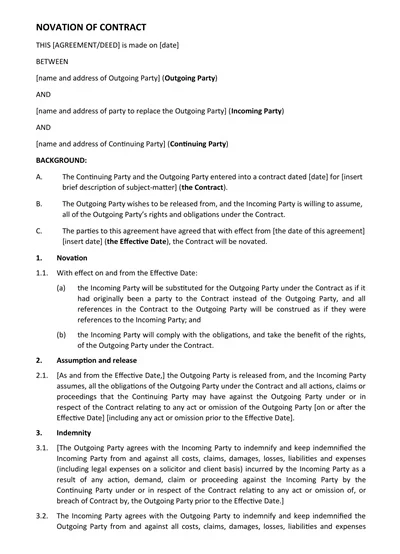
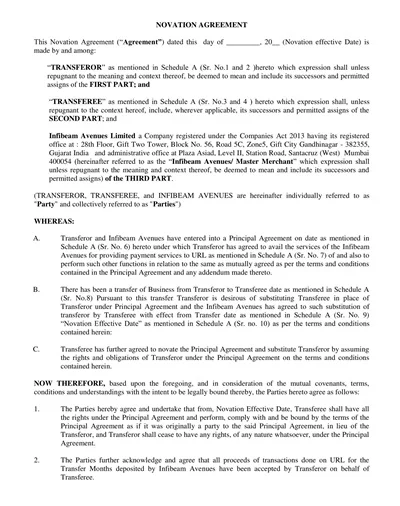
For a novation agreement to be considered valid, several key requirements must be met. These conditions ensure that the contract is legally binding and enforceable:
A Novation Agreement should be used in specific circumstances where the transfer of obligations and rights from one party to another is desired without creating a new contract. This is particularly crucial in situations where maintaining the essence and terms of the original contract is essential, yet the parties involved need to change.
Here are key situations where a Novation Agreement is applicable:
When a business is sold or acquired, a Novation Agreement allows for the seamless transfer of service contracts or leases to the new owner, ensuring continuity without the need to renegotiate terms.
Suppose a company wishes to change one of its service providers, such as IT services or cleaning services, but keep the contractual terms the same. In that case, novation facilitates this process by transferring the contract to the new provider.
In the context of property management, a tenant wishing to transfer their lease to another party will require a Novation Agreement to substitute the tenant with the new party while keeping the lease terms intact.
Novation and assignment are two key concepts in the transfer of obligations or rights under a contract, but they operate differently.
| Novation | Assignment |
|---|---|
| on the other hand, it does not create a new contract but transfers the rights under the contract from one party (the assignor) to another (the assignee). The obligations under the contract remain with the original party, and the assignee essentially steps into the assignor’s shoes to receive the benefits of the contract. Consent from the party to whom obligations are owed is not always required for an assignment to be effective, depending on the contract’s terms and the nature of the right being assigned. | On the other hand, it does not create a new contract but transfers the rights under the contract from one party (the assignor) to another (the assignee). The obligations under the contract remain with the original party, and the assignee essentially steps into the assignor’s shoes to receive the benefits of the contract. Consent from the party to whom obligations are owed is not always required for an assignment to be effective, depending on the contract’s terms and the nature of the right being assigned. |
Creating a Novation Agreement Template involves several key steps to ensure that all the legal and practical aspects of novation are covered.
Here’s how to structure your template:
By following these guidelines, you can create a comprehensive Novation Agreement Template that addresses all necessary legal aspects and is tailored to the specific needs of the parties involved.
How useful was this post?
Click on a star to rate it!
Average rating / 5. Vote count:
No votes so far! Be the first to rate this post.